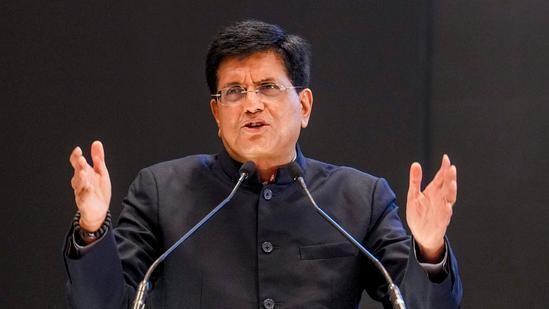
We’ll Have Speed, Not Haste: Goyal as India & UK Resume FTA Talks
In a significant development, India and the United Kingdom have decided to restart negotiations for a free-trade agreement (FTA). The announcement was made by Union Minister of Commerce Piyush Goyal after meeting UK Business and Trade Secretary Jonathan Reynolds. The decision to resume talks is expected to boost bilateral trade between the two nations, which has been impacted by the COVID-19 pandemic.
When asked about the timeline for concluding the FTA, Goyal emphasized the importance of speed but not haste. He said, “It’s never too late to conclude a good agreement…We’ll have speed, but not haste.” This statement suggests that the Indian government is prioritizing the quality of the agreement over a quick turnaround.
The FTA talks were initially suspended in 2020 due to the pandemic, but both countries have now decided to revive the negotiations. The agreement aims to reduce tariffs and other trade barriers between India and the UK, creating a more conducive environment for businesses to operate.
India and the UK have a long history of economic ties, with bilateral trade amounting to over $24 billion in 2020. The FTA would be a significant step forward in strengthening these ties and promoting economic cooperation between the two nations.
The resumption of FTA talks comes at a crucial time, as both countries are looking to diversify their trade portfolios and reduce their dependence on a few major trading partners. The UK, in particular, is seeking to expand its trade ties with countries in Asia, Africa, and the Americas following its departure from the European Union.
India, on the other hand, is looking to boost its exports and increase its share of global trade. The country has set an ambitious target of increasing its exports to $5 trillion by 2025, and the FTA with the UK could play a significant role in achieving this goal.
The FTA negotiations are expected to focus on several key areas, including goods, services, and investments. The agreement could also cover areas such as intellectual property, competition policy, and regulatory cooperation.
In addition to the economic benefits, the FTA talks could also have significant implications for the UK’s post-Brexit trade strategy. The UK is seeking to establish itself as a major player in global trade, and the FTA with India could be a key part of this strategy.
The Indian government has been working closely with the UK to revive the FTA talks, and Goyal’s meeting with Reynolds was seen as a significant step forward. The two sides are expected to hold several rounds of talks over the coming months to finalize the agreement.
While the timeline for concluding the FTA is still uncertain, Goyal’s statement suggests that the Indian government is prioritizing the quality of the agreement over a quick turnaround. This approach is likely to pay off in the long run, as a well-crafted FTA can have significant benefits for both countries.
In conclusion, the resumption of FTA talks between India and the UK is a significant development that has the potential to boost bilateral trade and promote economic cooperation between the two nations. The Indian government’s approach of prioritizing speed but not haste is likely to result in a high-quality agreement that benefits both countries.
Sources:






